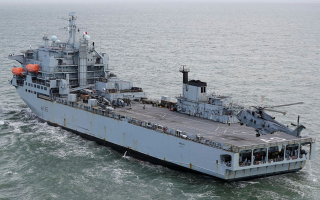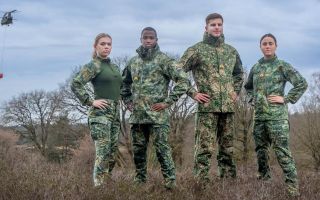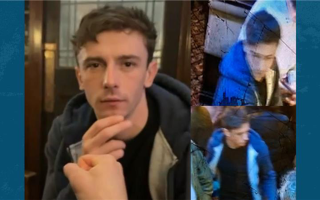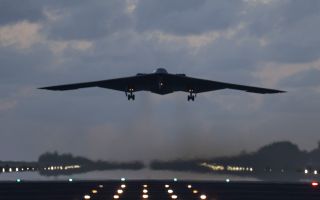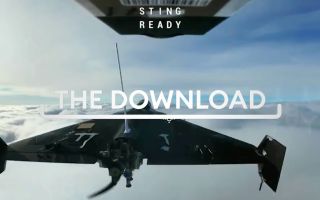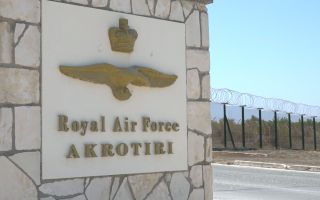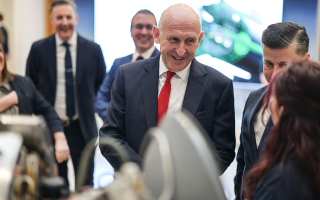Remembrance through veterans' eyes: Northern Ireland, Falklands, Gulf, Kosovo, Afghanistan
Young people should recognise the sacrifice of personnel who have served so they could enjoy the freedoms of modern life, veterans have told BFBS Forces News as the UK marks Armistice Day.
In a series of interviews with five veterans with experience of conflicts spanning from the Falklands to the present, they said that these past sacrifices have allowed younger people the freedom to speak and do as they wish.
"The reason that they are where they are with the freedoms that they have is because men and women have put themselves in the line of fire," Lieutenant Colonel Gordon Mallett said.
"Therefore, giving a few moments to reflect on that sacrifice, I think is a small price to pay for the freedoms they have."
Disclaimer: This article contains references to mental health problems, addiction, and death.
"I just bow my head and think about them"
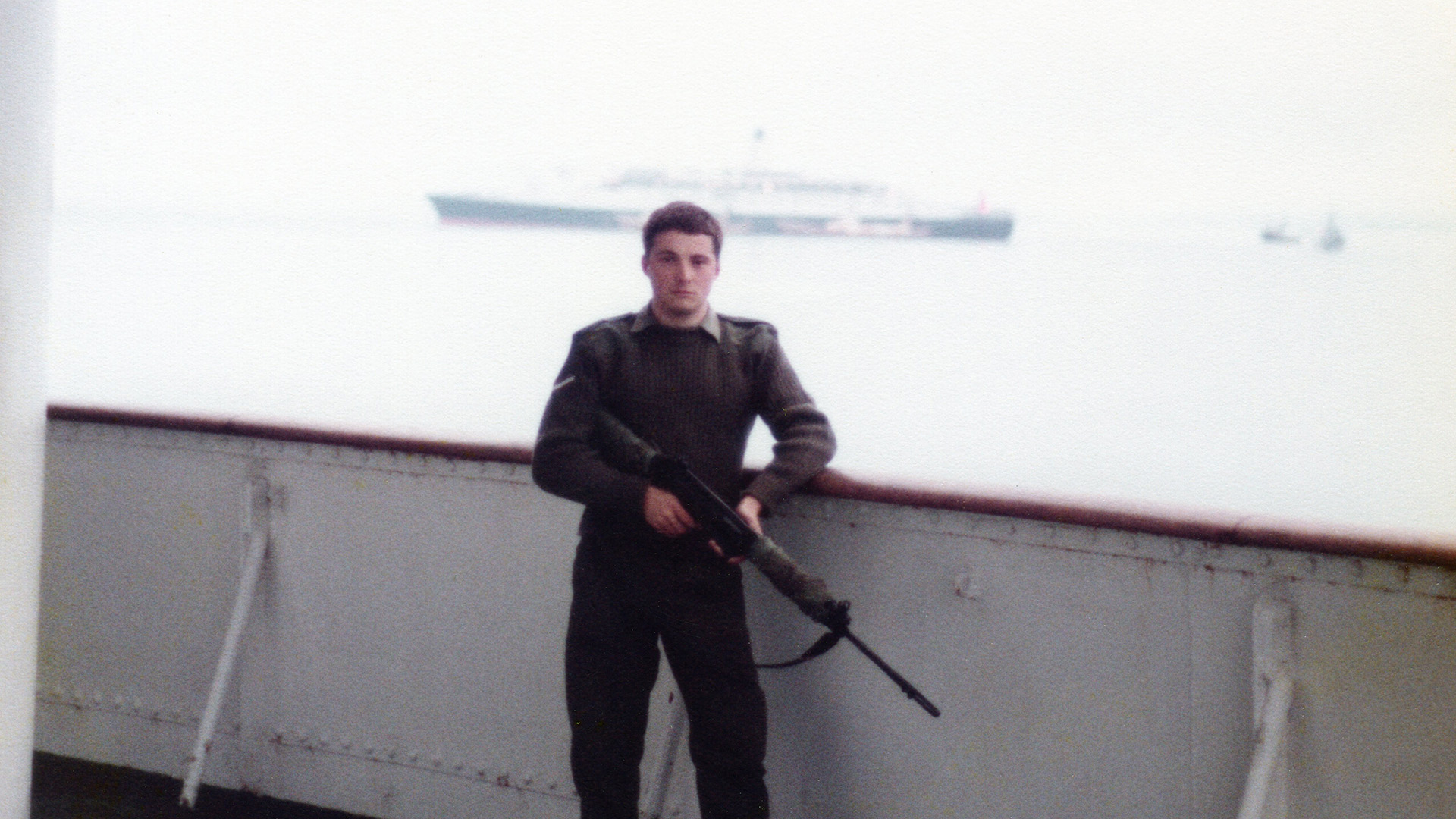
Brian Sherrington, Falklands War
Lieutenant Colonel (Ret'd) Brian Sherrington served in the British Army for 43 years with the Royal Engineers, before working for a charity that helped veterans find jobs for the last three years of his working life. The 67-year-old, who lives in Milnthorpe in Cumbria, is now retired.
He deployed to the Falklands as a lance corporal in 1982 after swapping places with a colleague to join the warfighting phase at the beginning of the conflict. He was mostly stationed in San Carlos, guarding the bridgehead.
Speaking about the conflict between the UK and Argentina, he said: "It was a real war, as most people are aware now.
"It's probably the last proper warfighting war [that] the British Army has taken part in."
Following the conflict, he adjusted back to non-operational life but said he had some experiences in the Falklands that caused post-traumatic stress disorder (PTSD).
"I do have some horrible dreams," he admitted.
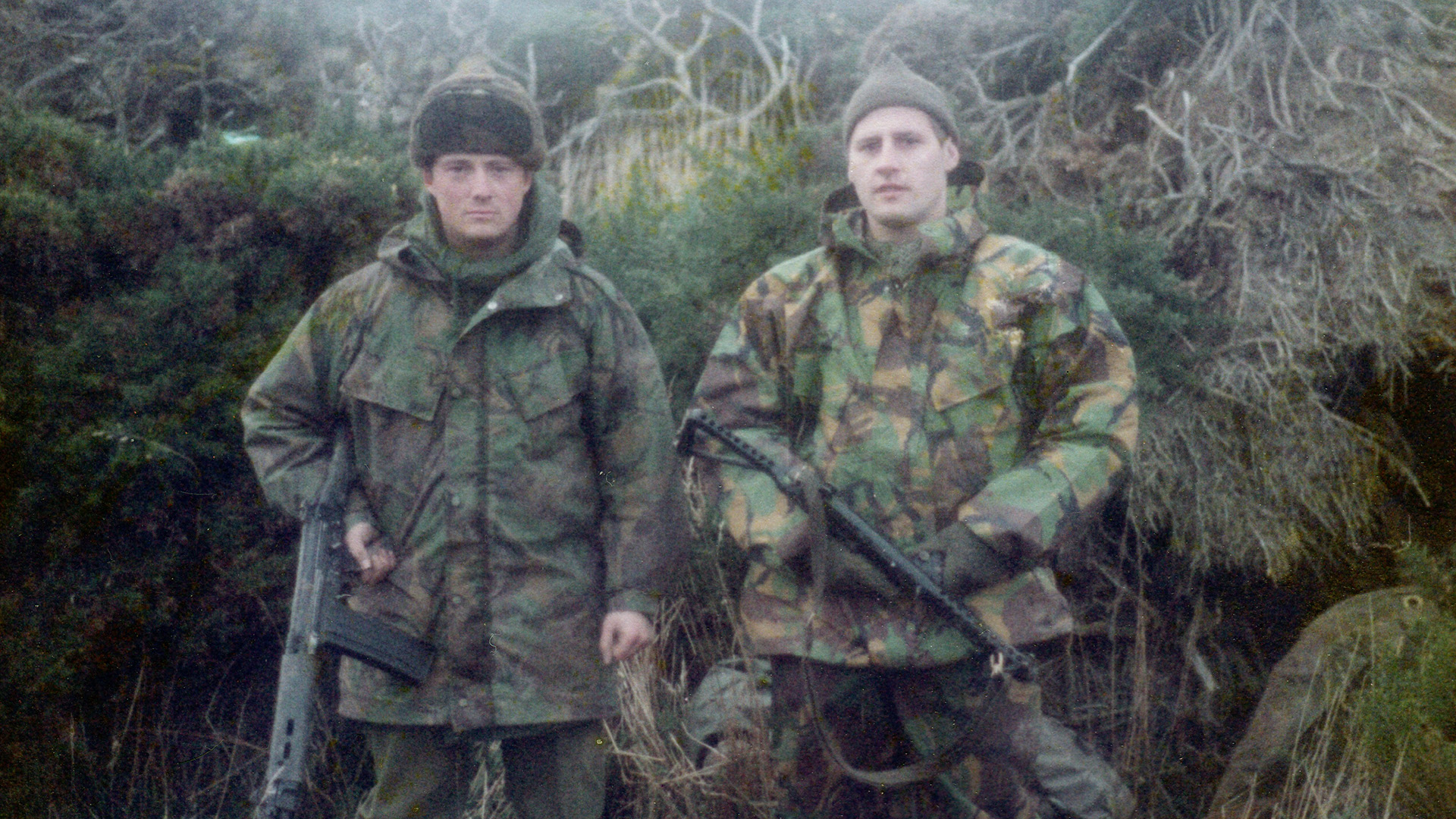
Lt Col (Ret'd) Sherrington, who has walked the Cenotaph parade with the Falklands Platoon in the past, revealed that Remembrance is "quite emotional” and a "very personal thing" for him.
"I think for most people in the military, at least, that have served a reasonable amount of time, it is a time to reflect on people that you have known that have passed away and not just in conflict," he said.
"I've got to an age where many of my old friends and comrades have passed away.
"So, on 11 November (Armistice Day), I just bow my head and think about them."
"Remembrance is actually remembering the guys I served with"
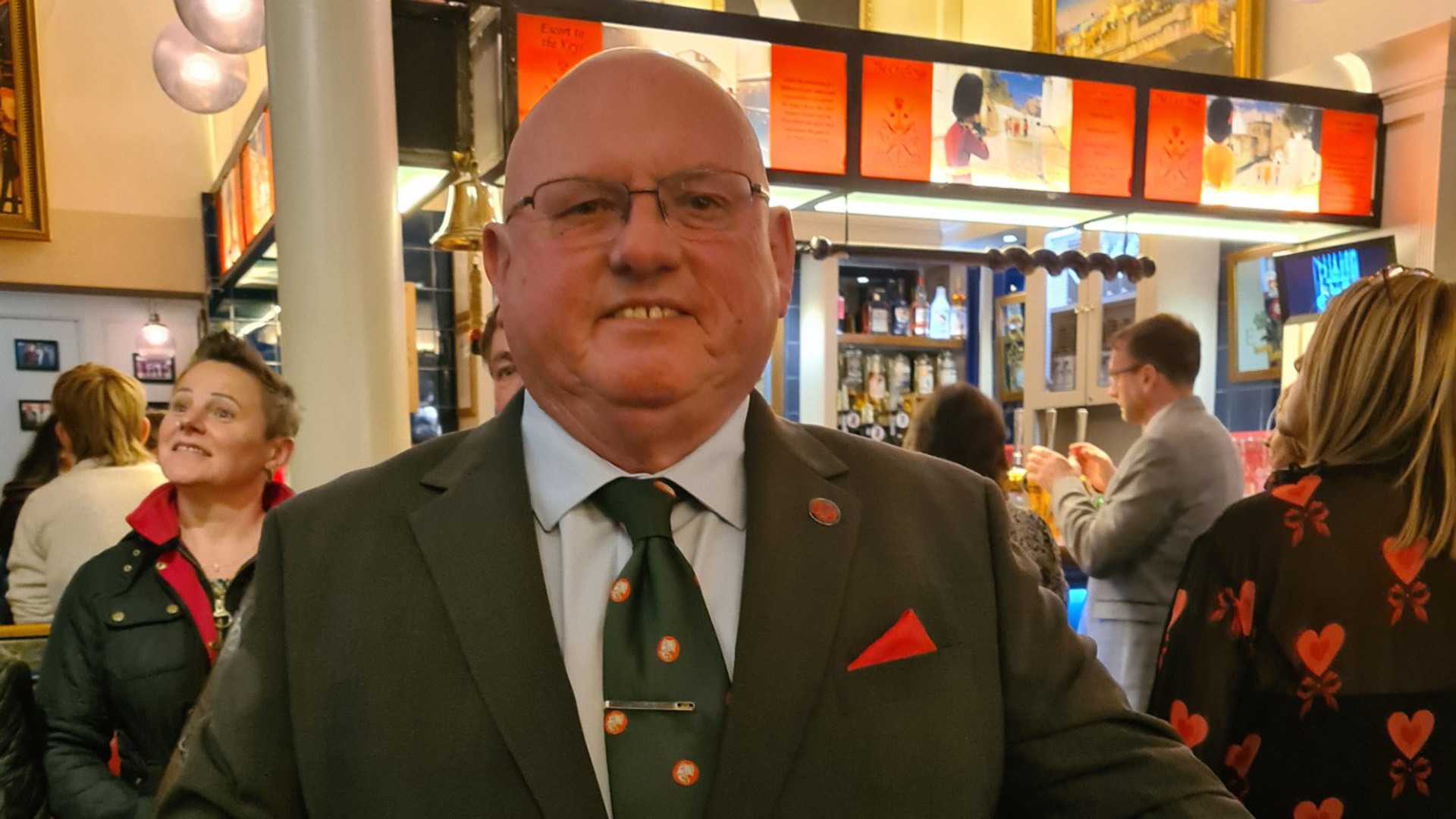
John Bryant, Gulf War
Sergeant (Ret'd) John Bryant joined the British Army in 1980 as a combat medic and later transferred to the Royal Air Force in 1986. He was medically discharged in 2003 following a serious road traffic accident.
He was a Permanent Staff Instructor on a reserve squadron, 4626 Aeromedical Evacuation Squadron, in the Royal Air Force, when the Gulf War broke out.
The 66-year-old said he was stationed in Riyadh, Saudi Arabia, evacuating personnel from the frontlines and dealing with prisoners of war in the conflict.
On Remembrance Sunday, he meets up with his old colleagues before the parade to the Cenotaph. Following the parade, he often goes for a drink and something to eat with other veterans as he tries to reconnect with people from his past.
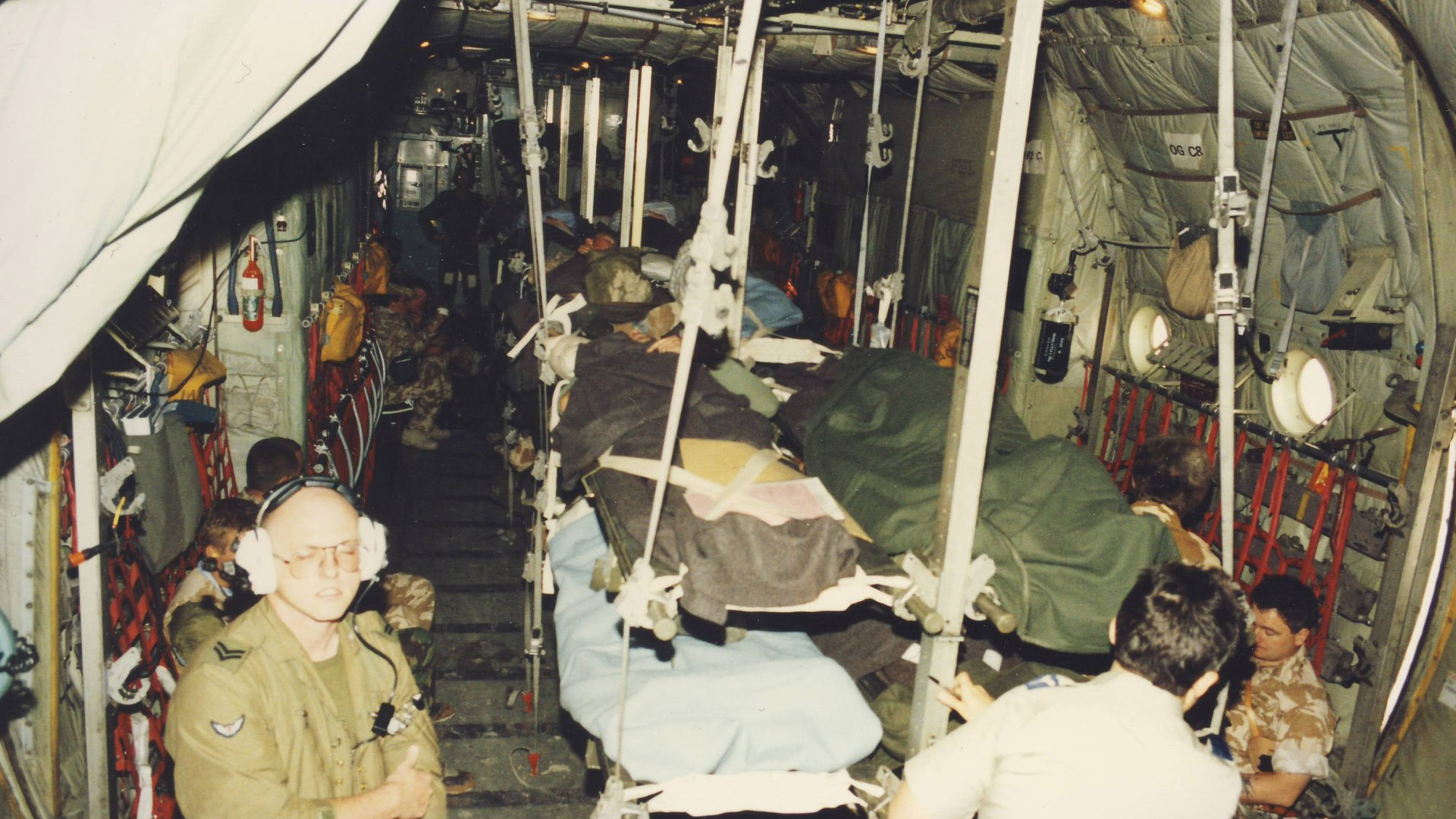
He told BFBS Forces News that standing on parade at the Cenotaph is a "very personal thing".
"Remembrance is actually remembering the guys I served with," he said. "The sacrifices of the other servicemen that have gone before me."
Recent surveys suggest younger generations are questioning the importance of Remembrance Sunday, with one in four (26%) members of Gen Z saying that it is not very important in an Ipsos Mori poll in 2023.
But Sgt (Ret'd) Bryant said that it is important for the UK to continue to focus on what past generations sacrificed for the country's freedom.
"The younger generation need to look back and realise what a lot of younger people their age gave [and] even younger gave up," he explained.
"So, they have the life that they have now, and they have the freedom to speak as they wish and the freedom to do as they wish."
"There was always a curry lunch on in the officers' mess that we would go to afterwards"
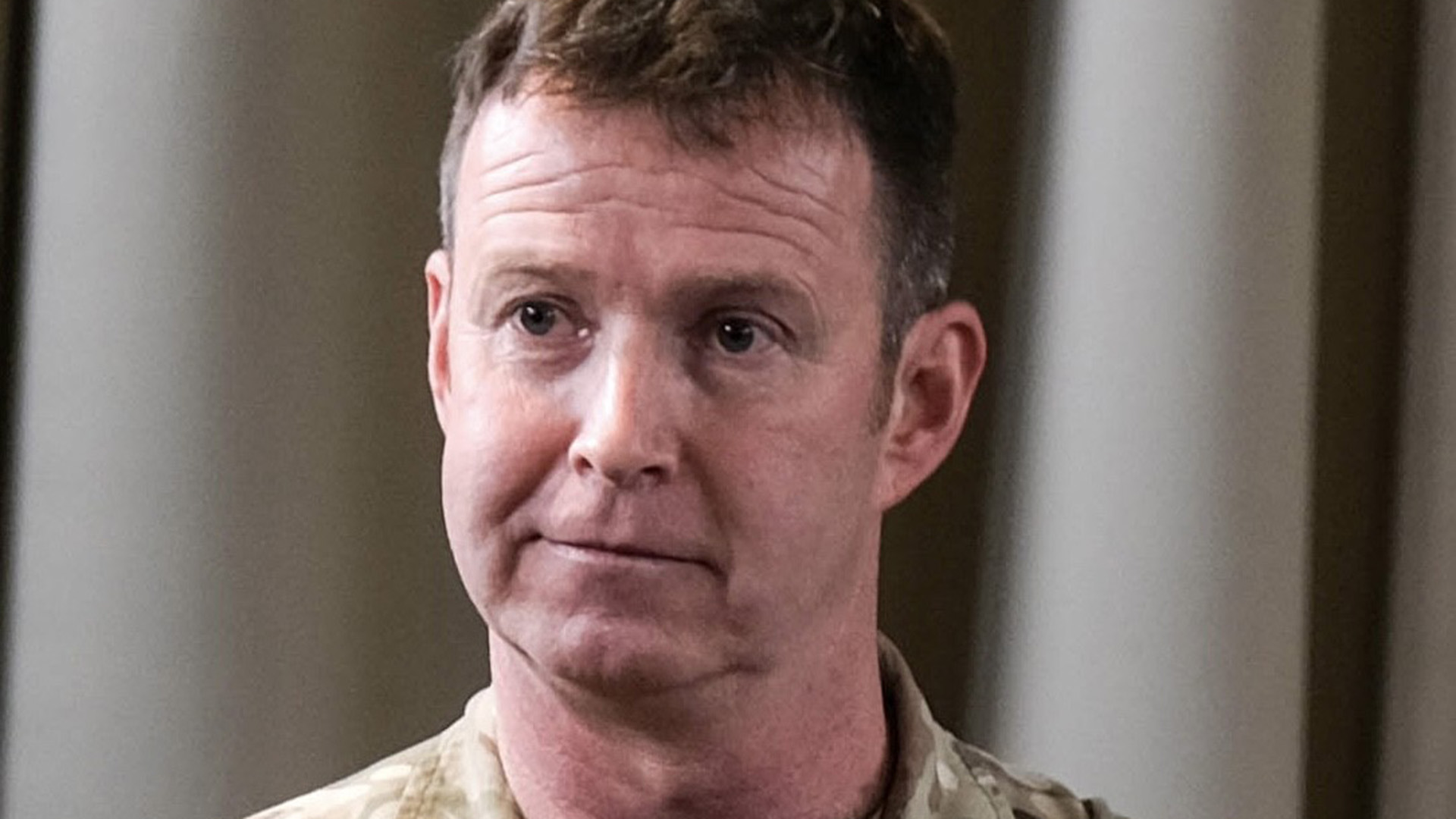
Gordon Mallett, Kosovo
Lieutenant Colonel Gordon Mallett has deployed to Cyprus, Kosovo, Iraq and Afghanistan over his 35 years of service in the British Army. He is currently the Chief Public Affairs Officer at the Allied Rapid Reaction Corps (ARRC) headquarters at Imjin Barracks, Gloucester.
Lt Col Mallett, 50, joined the British Army as a gunner in the Royal Artillery back in 1991, before he was transferred to the Adjutant General's Corps in 1998, where his first posting was with the ARRC in the lead-up to the conflict in Kosovo.
The Kosovo war began after Serbia and the Yugoslav government pressured the ethnic Albanians in the region, as the region wanted independence from Belgrade. In 1989, Serbia's president, Slobodan Milosevic, removed Kosovo's autonomy, causing protests in the region.
The removal of Kosovo's autonomy stoked violence between Serbs and Kosovar Albanians, with more than 300,000 Kosovars fleeing the conflict by the conclusion of 1998.
After peace negotiations failed in 1999, US-led Nato forces launched air strikes on Slobodan Milosevic's forces from March to June.
The soldier said it was "quite daunting," as he had only been deployed to Cyprus and to UN missions before.
He said it was his first real deployment and "something different than what I'd experienced before" because he was going with a three-star Corps headquarters.
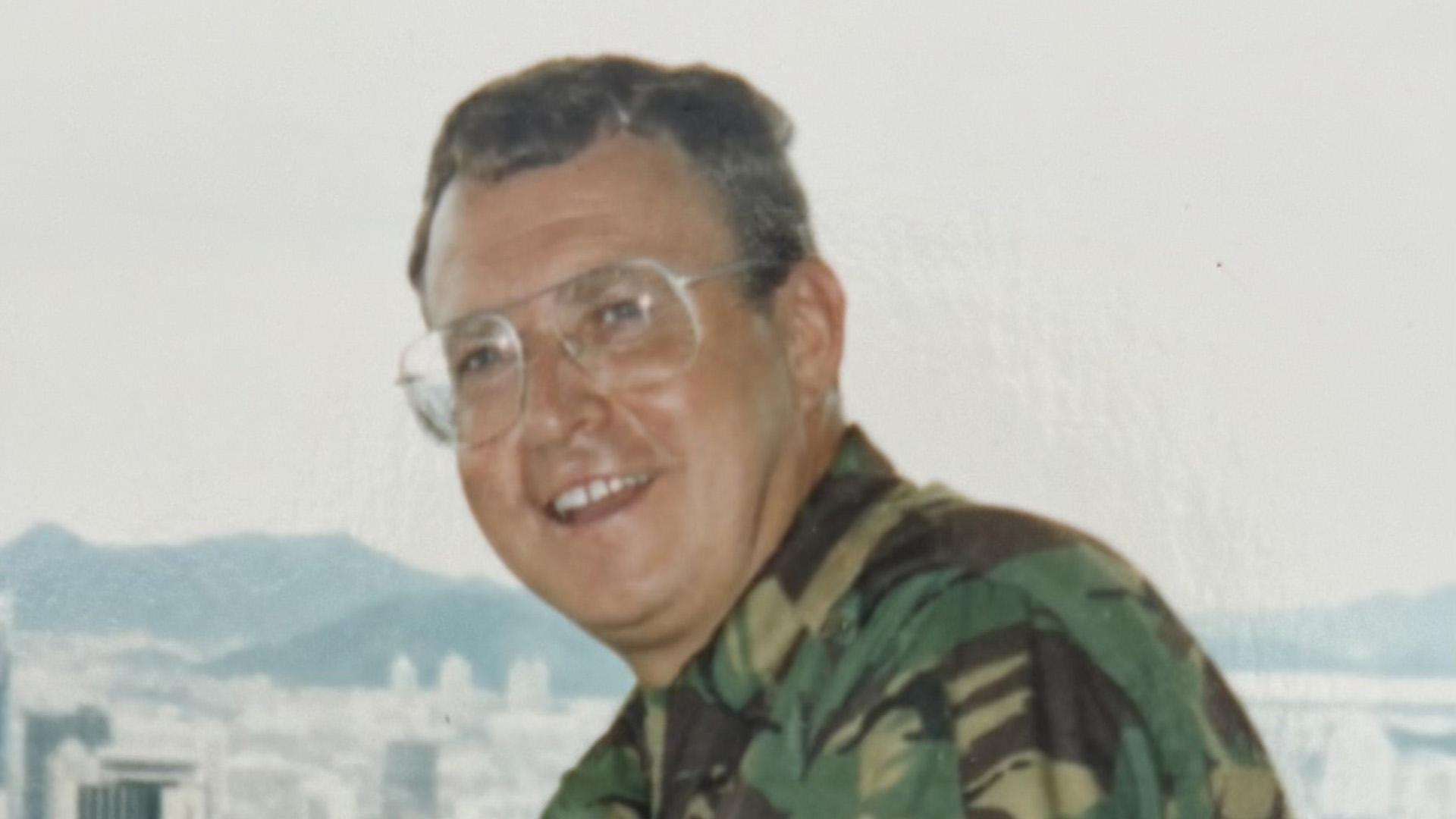
The soldier, who lives in Aldershot, praised the efforts of the troops in the conflict.
"By the time we left Kosovo, we felt that we had done [something] that was really worthwhile," he added.
"I mean, we'd gone to a country which was war-torn and by the time we left, we had a stabilisation force in place... I certainly felt that we were contributing to the peaceful resolution of what was going on there."
There is still a Nato-led peace support operation in the country, Kosovo Force (KFOR), with roughly 4,500 troops from 33 nations supporting the freedom of movement for the people of Kosovo, according to the alliance.
For Lt Col Mallett, there is an element of tradition in Remembrance, as he was a self-described "Army brat" when he was younger.
Both his father, who was in the Ordnance Corps, and his grandfather served before him, meaning he grew up attending Remembrance parades.
Lt Col Mallett said he felt "pride" and "solemnity" during Remembrance when asked about his emotions during that period.
"It's because of what I do and following in the footsteps of people before me, like my father, [and] my grandfather, who both fought in the war," he said.
"But, I say [it is] tinged with my personal experience in terms of knowing people who are no longer with us or knowing of situations when we were on ops, where we lost people."
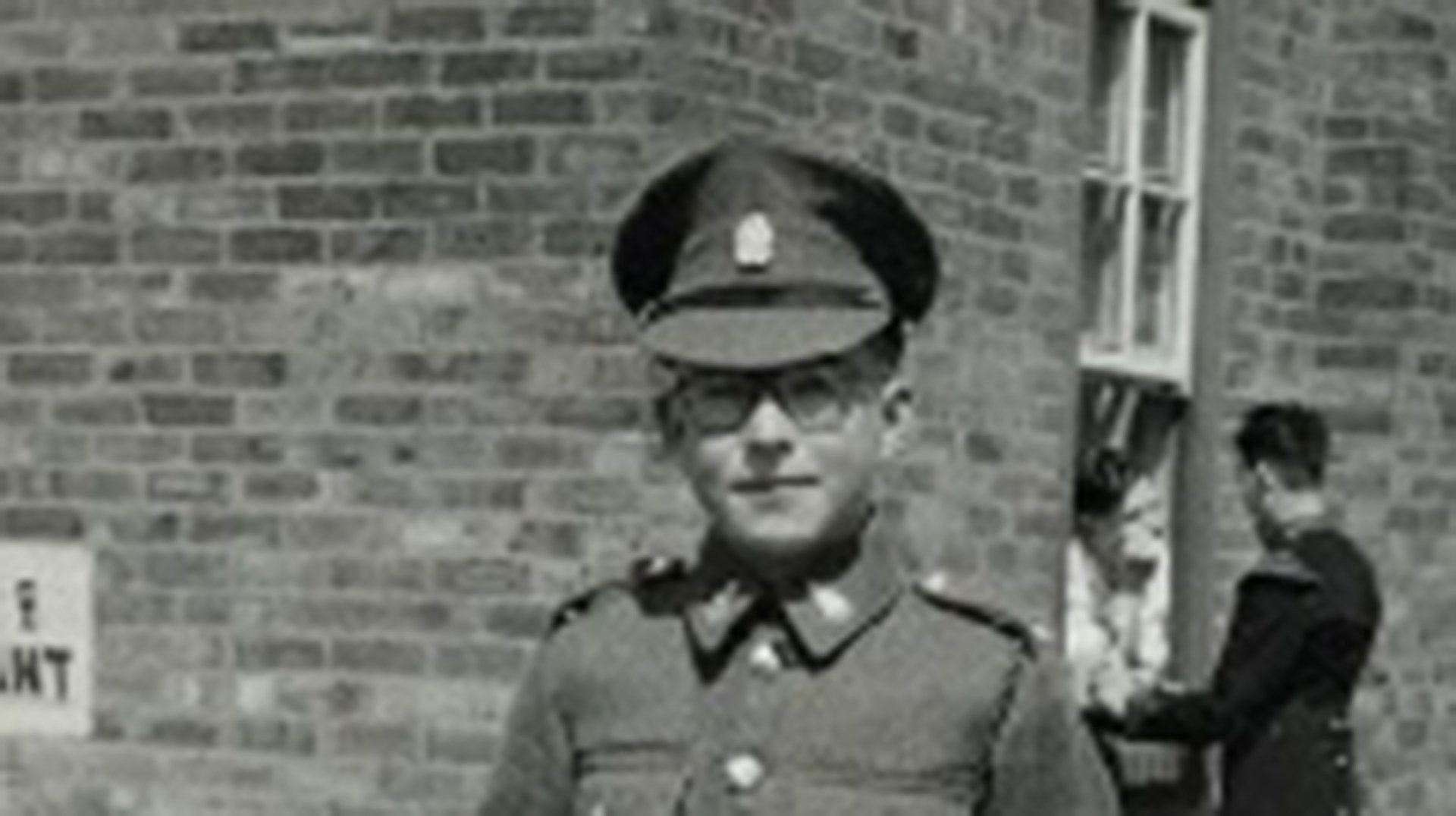
Lt Col Mallett, who has two girls, said that he went back down to Aldershot, a two-hour drive from his base, to attend the local ceremonies with his family in the town.
He also emphasised the fact that Remembrance is commemorated in different ways in military towns like Aldershot.
He said that schoolchildren do projects on the subject and put on big displays about what Remembrance means to them. "Aldershot, clearly with its military connections and that, Remembrance is a massive thing," he explained.
Lt Col Mallett also recalled previous Remembrance celebrations with fondness.
"There was always a curry lunch on in the officers' mess that we would go to afterwards," he added.
"You don't necessarily get that with some of the central messes, so there aren't necessarily that group bonding after the Remembrance parade, where everybody gets together, which I think are important."
"All celebrations have equal value"
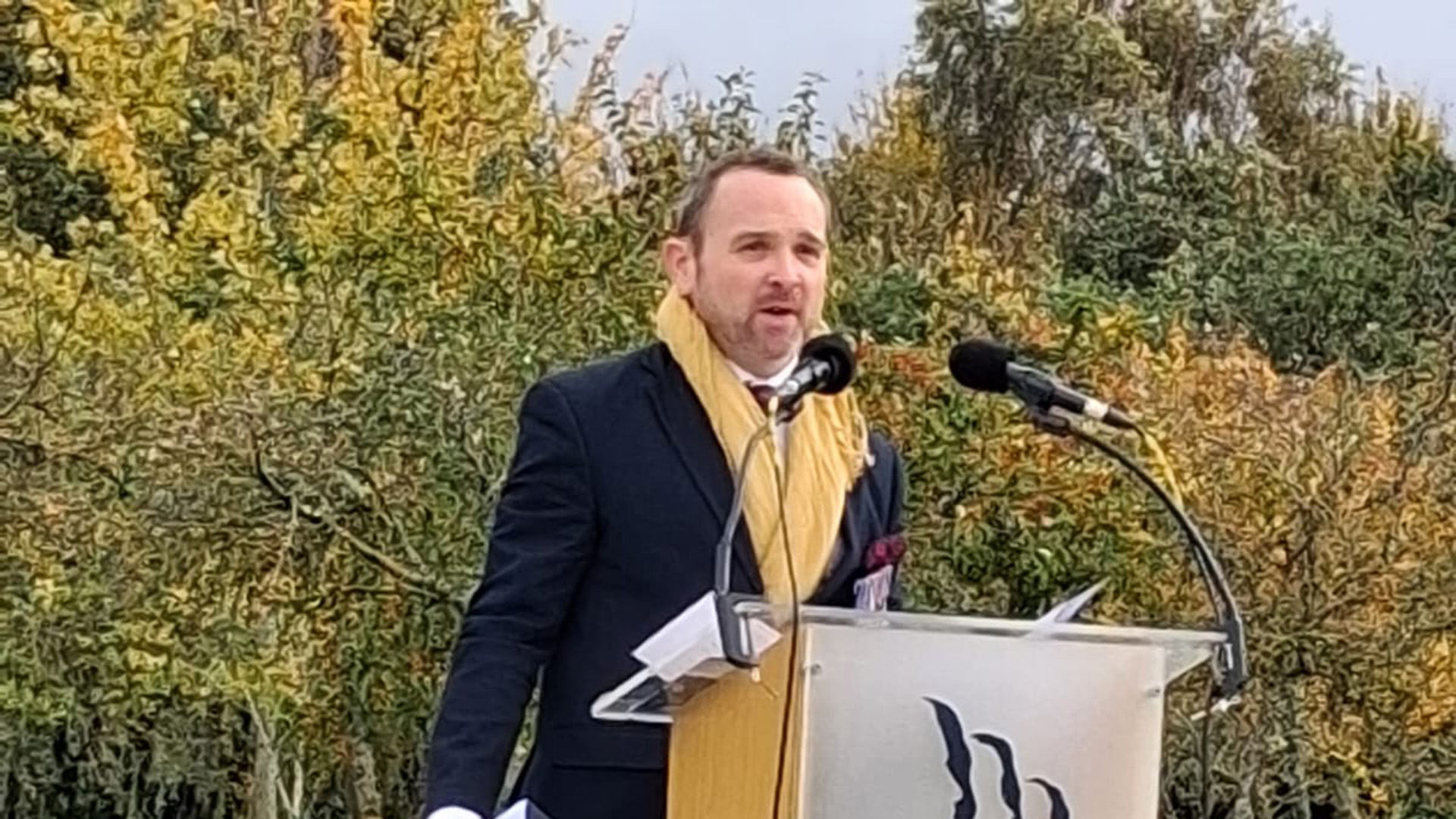
Jonny Ball, Afghanistan
Mr Ball, 46, the co-founder of the Afghanistan Veterans Community, served in Afghanistan as a Pashto linguist on Operation Herrick 15 from 2011 to 2012, attached to 20 Brigade, which meant he was working with the Royal Yorkshire Regiment and the Queen's Royal Hussars.
He deployed to Helmand Province, where he helped on engagement with the local tribal communities' children, rebuilding schools, training the Afghanistan national police, and aiding the wider stabilisation effort in the country.
Mr Ball said there was a "sense of challenge" when he returned to the UK after his deployment to Afghanistan.
He added that in past conflicts, there was a longer period for personnel to return to the UK, allowing them to process what had happened on the tour.
"That wasn't the case for us because you literally jump on a plane, be that coming back from R&R or at the end of your tour," he said.
"You'll go from a moment of being in a checkpoint in a remote part of Afghanistan, sometimes in a matter of hours or days, [to being] back home in the UK."
After the Taliban takeover of the country in 2021, Mr Ball told BFBS Forces News, he had a "mixture of emotions" about his involvement in the conflict.
"I'm still not cool with the fact that we left Afghanistan in the nature that we did, but there's little I or any of our community can do about that," he said.
"That decision was taken out of our hands. That was the decision of politicians. All we can do is look."
On the importance of Remembrance to younger generations of veterans, Mr Ball argued that younger veterans should feel "proud" of their service and their medals, while advising them not to be afraid of the formality of the occasion.
"If you're someone that just literally wants to turn up in the clothes that you put on that morning, that is the most important thing. Just be with your community," he said.
"Be part of that remembrance activity from the towns and villages where it's just as, if not more, important to the grand national events that we have at the Cenotaph, where I'll be this year.
"All of that has equal value."
"It's a time of reflection"
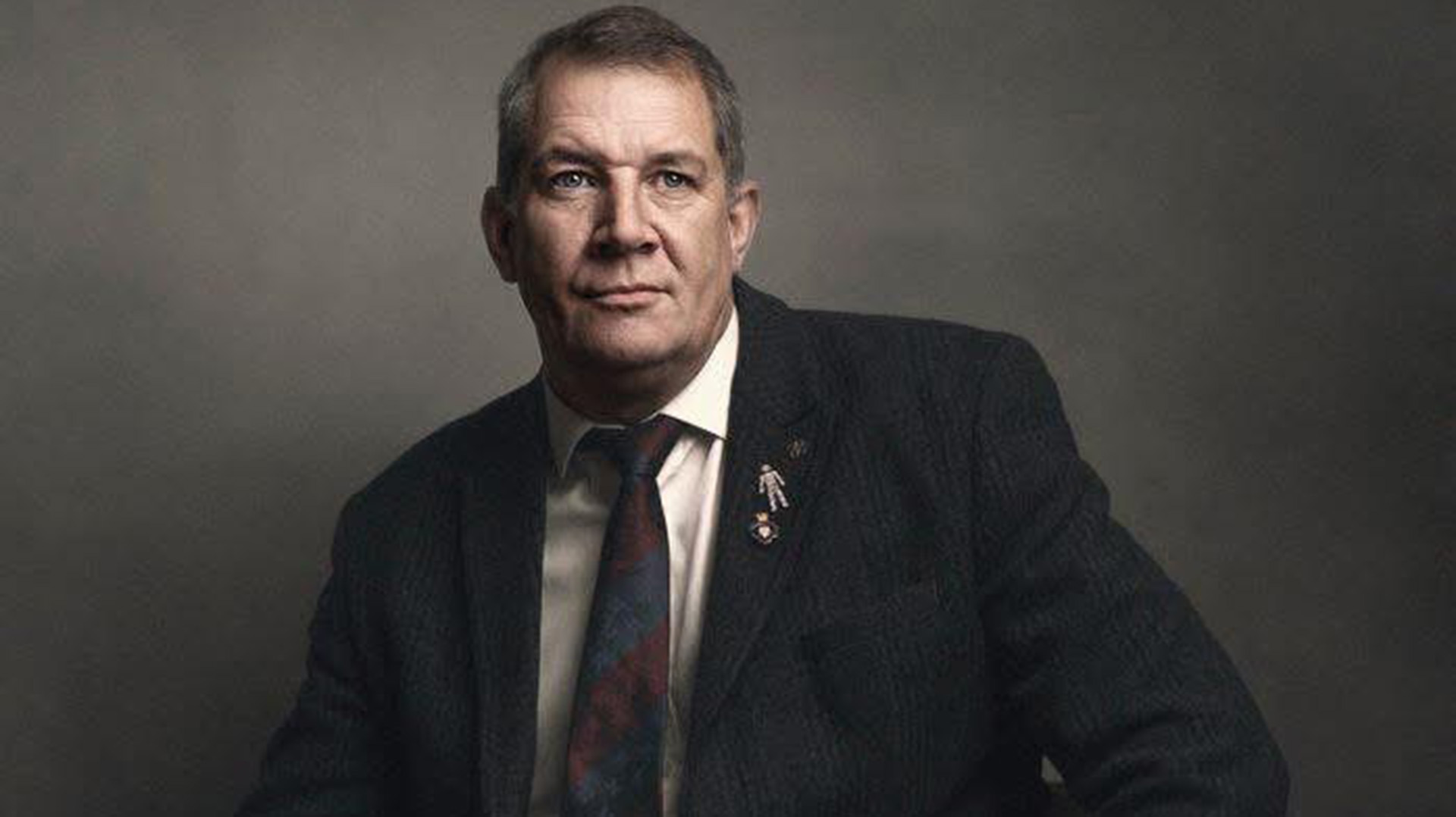
Duane Ashworth, Northern Ireland and Afghanistan
Lance Corporal (Ret'd) Duane Ashworth served in the British Army with the Grenadier Guards in Northern Ireland and in the first Iraq War. He currently runs Lord Kitcheners Guest House, a veterans' hotel in Lowestoft.
LCpl (Ret'd) Ashworth, originally from Corby in Northamptonshire, was deployed to Crossmaglen, close to the border between the south and the north, in 1993/94. The 57-year-old revealed that he had a "very eventful tour" during the Troubles, with explosions, shootings and Guardsman Danny Blinco's death after being shot by a sniper in South Armagh.
"[It was] obviously quite a hairy experience," LCpl (Ret'd) Ashworth said as he summed up his tour in Northern Ireland.
Subsequently, both of his sons, Coran, who had a promising rugby career with Northampton Saints, and James, who wanted to pursue football, joined up and went out to Afghanistan.
They came back safely from their first tour and spoke about their experience with their father.
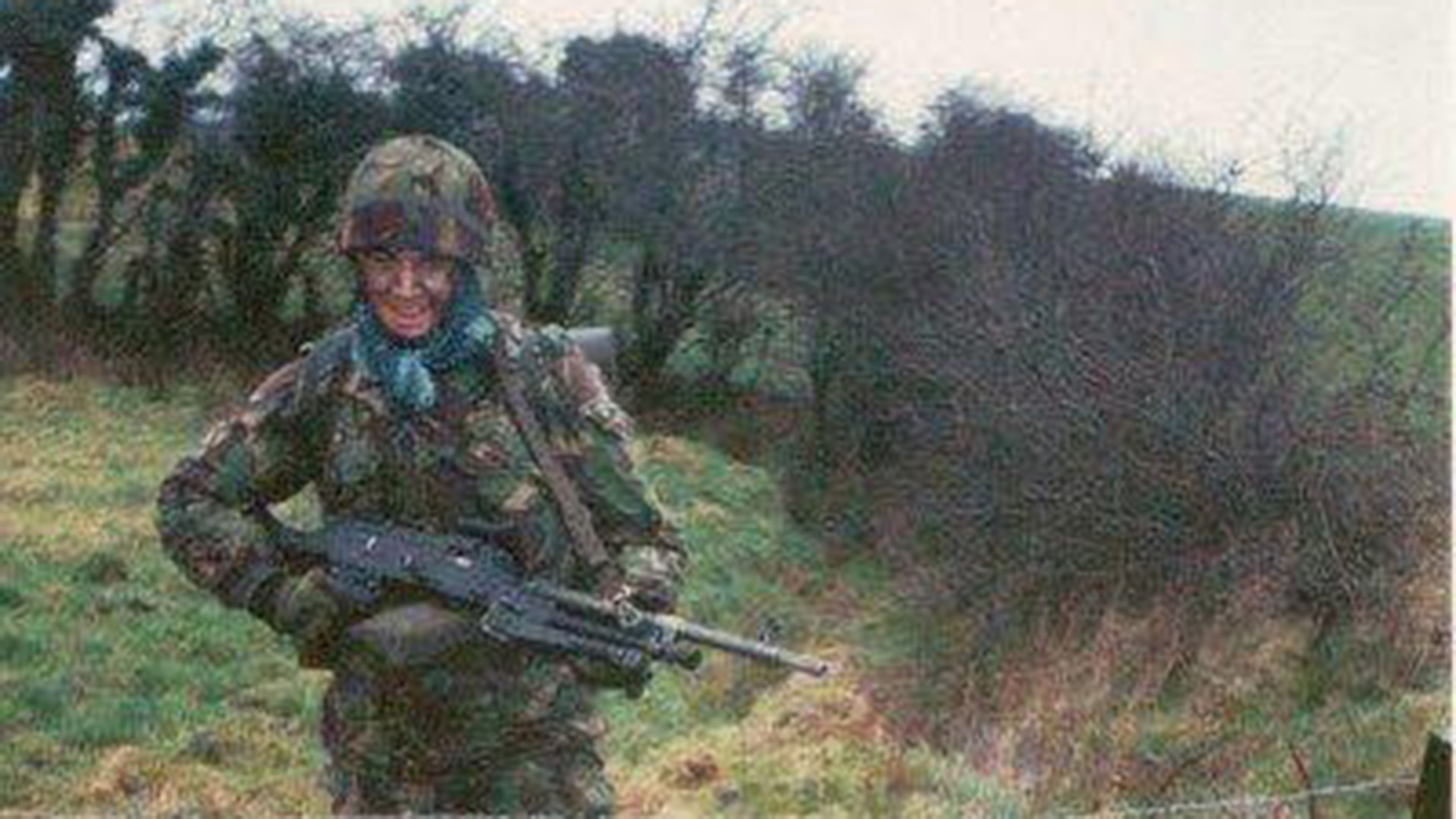
Then, Lance Corporal James Ashworth, who was also initially assigned to the Grenadier Guards like his father before becoming part of Guards Para, went out on his second tour.
During the tour, LCpl Ashworth, 23, was killed when a shot went into his body armour, leading to his grenade exploding, during an assault on an insurgent position in Nahr-e-Saraj, Helmand, in June 2012.
He was later awarded a posthumous Victoria Cross for his actions, and a square in Corby was dedicated to him.
Speaking about his son being awarded a VC posthumously, LCpl (Ret'd) Ashworth said: "It helps in remembering him. He will always be in the annals of history now as a Victoria Cross awardee.
"And will be remembered forever through the regiment, and especially through the Afghanistan war, being only three awarded."
Following his son's death in Afghanistan, he went through a "very, very dark period", with LCpl (Ret'd) Ashworth describing himself as a functioning alcoholic. The veteran also revealed he struggled with alcoholism after leaving the military.
"At the time, we ran a pub, and it was readily available," he went on to say.
"I surrounded myself with drinkers, and that was my way of coping."
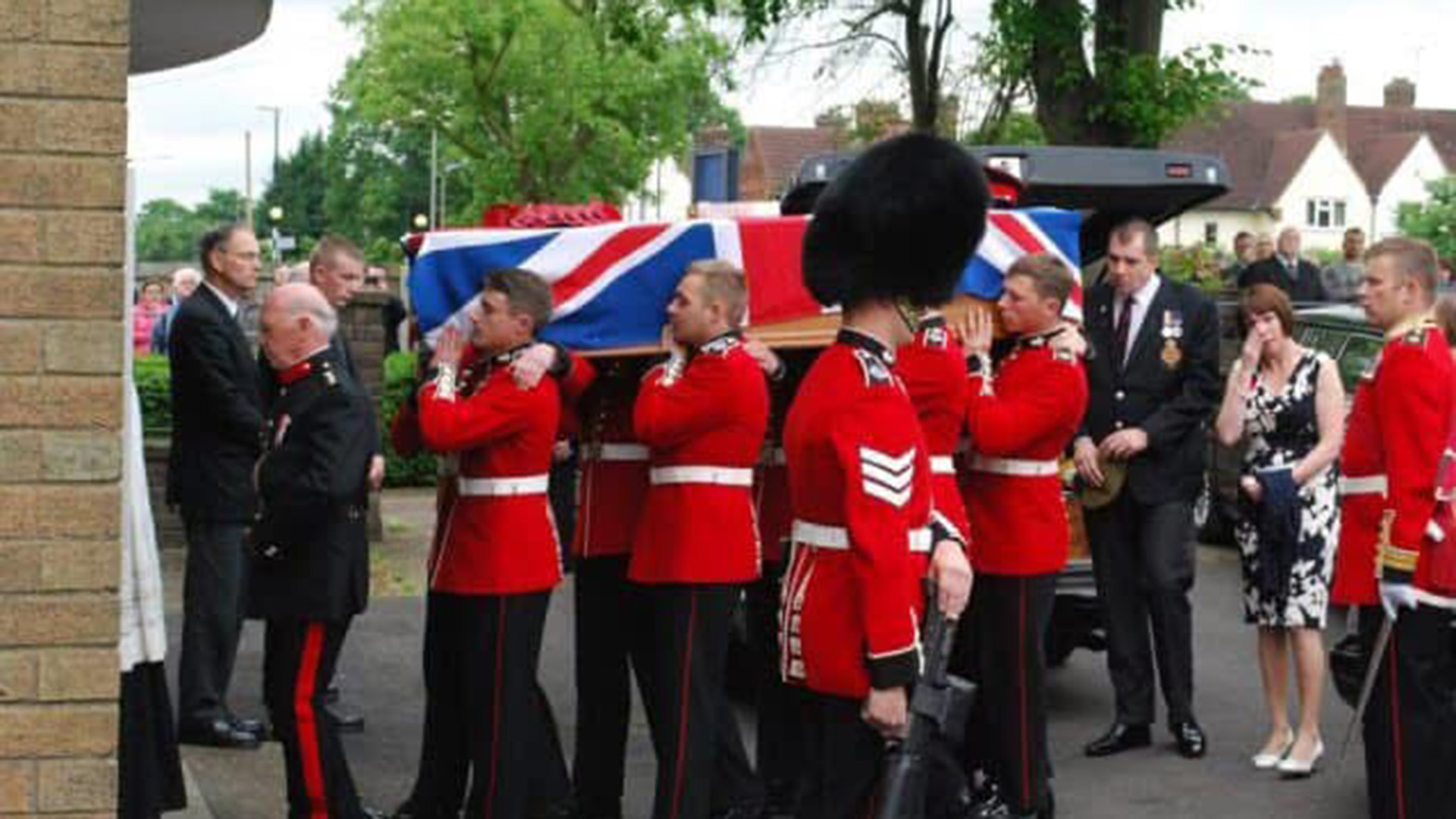
However, in 2017, that all changed as Mr Ashworth and his wife gave up alcohol overnight and changed their lives.
On Remembrance Sunday, he laid a wreath while wearing an Afghan shemagh in honour of the Afghanistan Veterans Community in London, before heading off to meet Coran for a drink afterwards.
For the former lance corporal, Remembrance is about his son, his friends who were killed and other colleagues he served with, making sure their lives are not forgotten.
"[It's] a reminder in general that we are always in some sort of conflict," he reflected.
"It's a difficult one to put in words. It's a time of reflection, really."
In addition to the personal meaning behind Remembrance, Lord Kitcheners Guest House hosted 150 to 200 veterans for Remembrance Sunday, where they celebrated the lives of those they have lost.
If you or someone you know needs support, find help available on our website.

